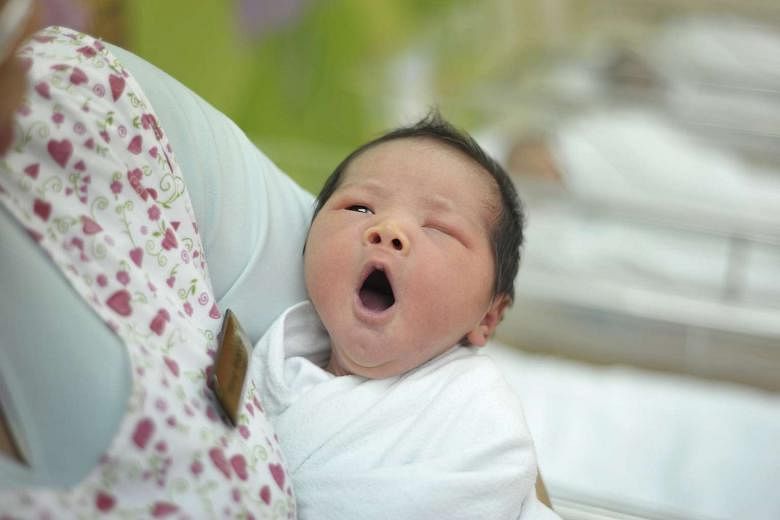SINGAPORE - From July, the public service will give an extra four weeks of unpaid infantcare leave per parent, to be taken in the child's first year.
Under a pilot scheme announced on Thursday (March 2), public servants and their spouses will be guaranteed six months of parental leave per couple.
This means that as long as one parent is a public servant, the couple can have up to 26 weeks of leave, or six months, between them.
Both men and women can apply for the leave. Supervisors will also have to grant all applications for this leave and make the necessary work adjustments, as long as reasonable notice has been given.
The scheme is meant to help ease new parents back to regular work and better support them in the workplace, said senior minister of state Josephine Teo, who oversees population matters.
It comes on the back of recent leave policies, such as the mandatory two weeks of paternity leave that kicked in on Jan 1. The new four weeks of shared parental leave will take effect in July.
The scheme will last three years to give the public service enough time to test the impact of longer parental leave in workplaces, and to see whether it is practical to roll out the scheme nationwide in future, said Mrs Teo.
She also hoped that companies will also introduce similar leave policies.
However, she cautioned that the challenges of the leave scheme should not be underestimated.
"As it is, some employers face great difficulty in accommodating staff with childcare needs. Some parents also tell of the pushback they experience from co-workers. Extending parental leave can unwittingly be an added source of tension at the workplace," she added.
During the debate on the budget of the Prime Minister's Office, Mrs Teo also gave an overview of what the Government is doing to support young couples who want to have children.
This includes faster access to public housing, and more places in infantcare centres.
For parents who prefer that their infants be cared for at home, NTUC's SEED Institute, which trains early childcare educators, will work with KK Women's and Children's Hospital to introduce a new course that teaches domestic helpers how to care for infants.
The course will focus on safety and hygiene, as well as help both the employers and their helpers establish a common understanding of how the infant should be cared for.
The course has 100 places now, and could be scaled up in the future.


